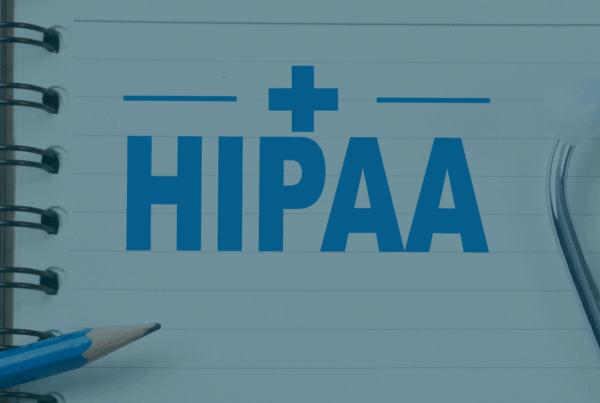The world of record retrieval is rapidly changing, and the future will be no different. Shaped by advances in technology, updated regulations, and a demand for efficiency, security, and time-saving burdens in the legal industry, more firms and organizations are relying on the need for a streamlined and automated approach to obtaining and reviewing records.
What are some of the key trends shaping the future of record retrieval?
- Transition to Electronic Medical Records (EMR).
- The Emergence of Artificial Intelligence (AI) for Record Retrieval, Organization and Summarization.
- Cloud-based Technology & Storage.
- Patient Portals & Digital Access.
- Machine Learning for Document Search.
- Integration with Law Firm Practice Management & Insurance Carrier Database Systems.
- Enhanced Consent and Authorization Management.
- Data Integrity & Error Mitigation.
- AI-assisted Research & Retrieval Services.
Transition to Electronic Medical Records (EMR)
Standardization of electronic medical records shows benefits when centralizing patient data in digital formats. As electronic records become standardized across healthcare facilities, retrieving records among different institutions will become faster, seamless, and more efficient. Moreover, the concept of interoperability (sharing records among healthcare providers) will make the retrieval process more seamless by saving time and cost and becoming more efficient.
The Emergence of Artificial Intelligence (AI) for Record Retrieval, Organization and Summarization
The emergence of AI tools in the marketplace can automate retrieving, sorting, organizing, and summarizing records. AI technology can identify relevant documents and quickly retrieve them from many databases. Furthermore, machine learning can predict the relevant documents about the current case. For example, AI technology can review large volumes of medical records from single or multiple providers and decipher which records are most relevant to the underlying injury or disease in the claim.
Cloud-based Technology & Storage
Cloud-based technology is already making medical records more accessible and easier to share. Patients and providers can access digital medical records from anywhere. As more healthcare providers adopt cloud-based storage, retrieving records will inevitably be quicker.
Patient Portals & Digital Access
Patients increasingly gain direct access to their online medical profiles and digital records via secure online portals. These database platforms allow patients more flexibility to communicate with providers, retrieve their records, track and manage treatment, and share information with multiple sources (e.g., other healthcare providers, legal professionals, insurance carriers, medical experts, etc.) in real time.
Machine Learning for Document Search
As AI technology improves, searching large volumes of records with basic search inquiries will become easier. Patients, legal professionals, and healthcare providers will quickly access relevant information and documents without knowing specific data sets or file numbers. Certain software functions, such as predictive programming features, will understand the context of a user request and differentiate between asking for records related to a specific accident, injury, or claim versus asking for medical treatment or history. This can be a game-changer in the industry by avoiding unnecessary delays when searching for documents.
Integration with Law Firm Practice Management & Insurance Carrier Database Systems
As we proceed with an increasingly digital healthcare environment, more legal and insurance professionals will embrace electronic records and use systems that integrate with EMR platforms to obtain, review, and manage records. This will likely simplify record retrieval for insurance companies who adjudicate those claims and corresponding legal professionals involved in litigation of those claims by streamlining the process of obtaining medical documentation.
Enhanced Consent and Authorization Management
Patients can grant or revoke consent to share using digital tools within minutes. This will improve the record retrieval process’s efficiency while ensuring access to sensitive information is within compliance. Legal professionals will benefit from tightly controlled sensitive information because it will help streamline workflows (i.e., electronic signatures on authorizations processed quickly). This will inevitably expedite the record retrieval process while minimizing or, in many cases, eliminating unnecessary delays in the litigation process.
Data Integrity & Error Mitigation
Timely and accurate medical records are essential in insurance claims and legal cases. The future of medical records retrieval to support the management of those claims will likely see mitigation or elimination of human errors in data entry by using real-time validation checks, ensuring medical records are up-to-date and free from any mistakes during retrieval. AI and machine learning systems could also play a vital role in reducing errors (i.e., identifying missing information, identifying discrepancies, etc.), ensuring that only accurate and complete data is shared.
AI-assisted Research & Retrieval Services
Record retrieval companies specializing in obtaining medical records operating in a third-party capacity will invest and use technology to assist in managing their record retrieval processes. This will streamline processes, improve efficiency, reduce costs and errors, identify and locate records, and avoid unnecessary delays, ultimately getting to the settlement and resolution of those claims quicker. Virtual assistants or chatbots could also guide legal teams through the record retrieval process, helping them identify the records needed and ensuring all relevant information is gathered and shared with appropriate parties promptly.
The Future is Bright
The future of record retrieval looks promising as it aims to be more efficient, secure, and accessible, driven by technologies like AI, machine learning, and tightly controlled electronic medical record systems. These innovations will reduce the time and effort required to retrieve records, improve the accuracy and quality of the information, and offer patients, insurance carriers, healthcare providers, and legal professionals a systemized way to control, retrieve and share medical information. It is also important to remember that as technology and processes improve, the evolving regulatory landscape will require careful management to protect patient privacy and ensure records are obtained and used ethically and legally. As these technologies mature, we can expect faster, more streamlined processes for retrieving and sharing records. This will undoubtedly transform the healthcare industry with respect to how medical information is shared and used in legal contexts.







